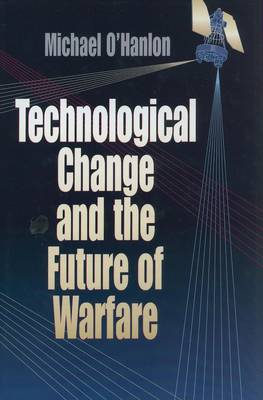
- Afhalen na 1 uur in een winkel met voorraad
- In januari gratis thuislevering in België
- Ruim aanbod met 7 miljoen producten
- Afhalen na 1 uur in een winkel met voorraad
- In januari gratis thuislevering in België
- Ruim aanbod met 7 miljoen producten
Omschrijving
In light of the spectacular performance of American high-technology weapons in the 1991 Persian Gulf War, as well as the phenomenal pace of innovation in the modern computer industry, many defense analysts have posited that we are on the threshold of a revolution in military affairs (RMA). The issue has more than semantic importance. Many RMA proponents have begun to argue for major changes in Pentagon budgetary priorities and even in American foreign policy more generally to free up resources to pursue a transformed U.S. military--and to make sure that other countries do not take advantage of the purported RMA before we do. This book takes a more measured perspective. Beginning with a survey of various types of defense technologies, it argues that while important developments are indeed under way, most impressively in electronics and computer systems, the overall thrust of contemporary military innovation is probably not of a revolutionary magnitude. Some reorientation of U.S. defense dollars is appropriate, largely to improve homeland defense and to take advantage of the promise of modern electronics systems and precision-guided munitions. But radical shifts in U.S. security policy and Pentagon budget priorities appear unwarranted--especially if those shifts would come at the expense of American military engagement in overseas defense missions from Korea to Iraq to Bosnia.
Specificaties
Betrokkenen
- Auteur(s):
- Uitgeverij:
Inhoud
- Aantal bladzijden:
- 224
- Taal:
- Engels
Eigenschappen
- Productcode (EAN):
- 9780815764403
- Verschijningsdatum:
- 1/01/2000
- Uitvoering:
- Hardcover
- Formaat:
- Ongenaaid / garenloos gebonden
- Afmetingen:
- 160 mm x 231 mm
- Gewicht:
- 476 g

Alleen bij Standaard Boekhandel
Beoordelingen
We publiceren alleen reviews die voldoen aan de voorwaarden voor reviews. Bekijk onze voorwaarden voor reviews.









